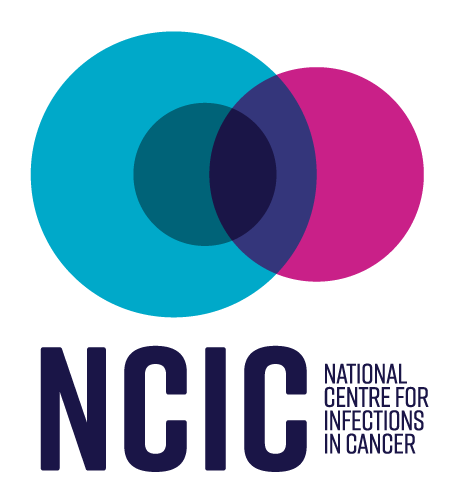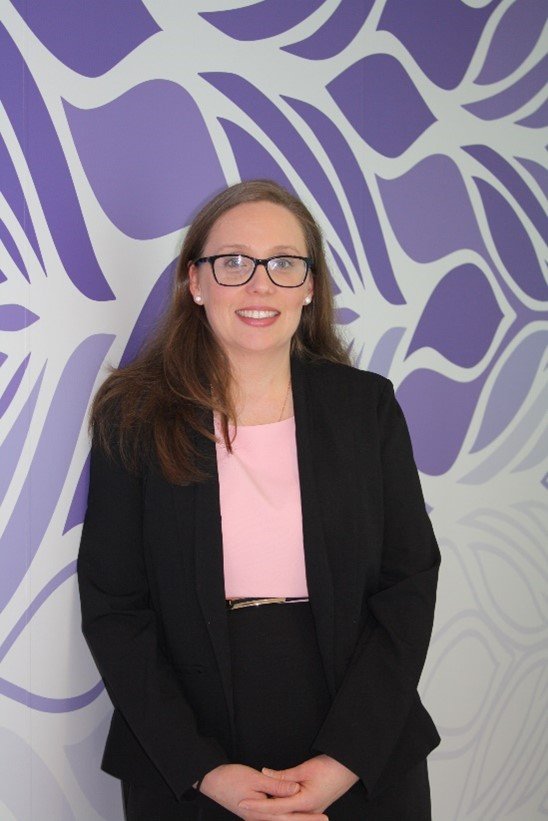View the August NCIC Seminar
Prof Karin Thursky and Mr Nikhil Singh
Exploring the Pros and Cons of Fluoroquinolone Prophylaxis in Neutropenic Fever HERE.
World Sepsis Day,
Sept 13th
We are also hosting World Sepsis Day activities on Sept 13th, with plenty of cupcakes and give away’s. Keep your eyes out for our AMS NP Belinda Lambros if you are in the precinct.
ANZMIG Mycology Masterclass 2023
2nd - 4th November
NCIC Presenters: A/Prof Ben Teh and Dr Michelle Yong
Dear all,
September is looking like another busy month for NCIC with plenty of upcoming meetings and activities. Next week I will be giving the NCIC Seminar for September on New Antifungals. Sept 7th at 12.30pm. You can register for the zoom link below.
International Visitors
September is also a busy month for visitors to our centre. We will be hosting Drs Galadriel Pellejero from Spain, Dr Daphne Lau from Hong Kong and Dr Yan and Shih Han Chen from Taiwan. Drs Pellejero and Lau will be joining us for several months to observe our clinical practice and AMS activities in particular. While Dr Yan and Shih Han will be joining us for 2 weeks to learn how we run our clinical trial group. Welcome to all our International visitors!
Eureka Prize
Congratulations also to our colleagues at the Doherty Professor Katherine Kedzierska, PhD FAHMS and Dr Oanh Nguyen on your much deserved Eureka prize! It is wonderful collaborating with your group and the insights into vaccine responses in cancer are so valuable to our patients. Enjoy this wonderful recognition of your contribution to science.
NCIC Symposium and Workshop
In person, Friday 6th October 2023, 10am-4pm, Graduate House, UoM
Pathways to better infection care in cancer
A full day symposium providing a comprehensive update on new pathways of care and novel interventions to deliver best practice care for treating and preventing infection in cancer. This symposium will be practical and interactive, with the opportunity to speak with experts in infectious diseases, health services research and implementation to help tailor interventions to your setting.
Venue: Graduate house, University of Melbourne, Melbourne, Australia. 220 Leicester Street Carlton VIC 3053
Target audience: Medical, nursing, pharmacy practitioners involved in cancer care, including regional centres.
Ticket price: $150 for medical practitioners, $50 for nurses/pharmacist/allied health
Feature Paper
Risky business: The impact of antimicrobial prescribing on multidrug-resistant Gram-negative BSIs in acute myeloid leukemia patients.
Transplant Infectious Disease
Beatrice Z Sim, Monica A Slavin, Abby P Douglas
The editorial written by our fellow Dr Beatrice Sim under the guidance of Dr Abby Douglas and Prof Monica Slavin discusses a paper in TID correlating duration of antibiotics and emergence of resistant gram negative infection in AML patients. The theme of shorter duration of antibiotics is also discussed in the paper by Imlay, Laundy et al and is one we are focussing on with upcoming studies in collaboration with our haematology colleagues. A/Prof Gab Haeusler is already conducting an electronic medical record-embedded randomised clinical trial comparing shorter course antibiotics to standard course in children with fever and neutropenia at RCH and MCRI and we are currently in the process of designing a similar study in adult patients. This topic is very relevant to our patients and we aim to soon add to the evidence around stopping antibiotics early in stable patients with fever and neutropenia.
Recent publications
Shorter antibiotic courses in the immunocompromised: the impossible dream? Imlay et al
The antifungal pipeline for invasive fungal diseases: what does the future hold? Neoh et al
Parvovirus B19 in stem cell transplantation. Kinsella et al
Invasive fungal infections after CLAG-M/CLAG chemotherapy for acute myeloid leukemia and high-grade myeloid neoplasms. Lindsay et al
Invasive aspergillosis in liver transplant recipients. Melenotte et al
Multidrug-resistant Enterobacterales infections in abdominal solid organ transplantation. Pilmis et al
Risky business: The impact of antimicrobial prescribing on multidrug-resistant Gram-negative BSIs in acute myeloid leukemia patients. Sim et al
Rezafungin versus caspofungin for treatment of candidaemia and invasive candidiasis (ReSTORE): a multicentre, double-blind, double-dummy, randomised phase 3 trial. Thompson et al
Kind regards
Prof Monica Slavin, MBBS, MD, FRACP, FAAHMS
Head, Department Infectious Disease, Peter MacCallum Cancer Centre
Professor of Infection in Cancer and Transplantation, University of Melbourne Department of Infectious Diseases and the Sir Peter MacCallum Department of Oncology
Director, National Centre for Infections in Cancer and Transplantation
























